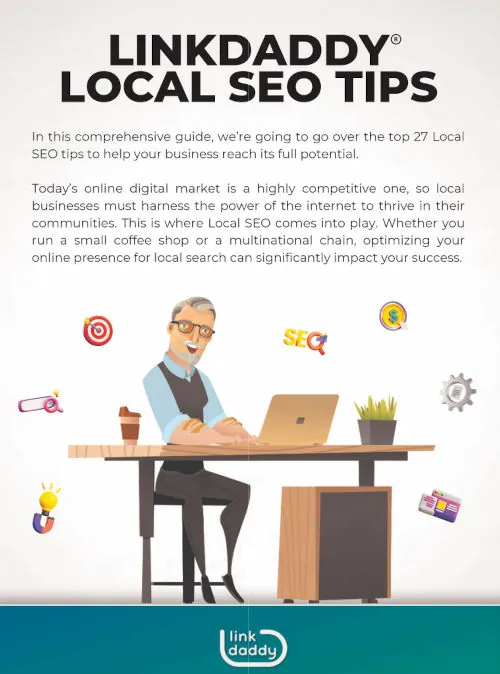
Off-page search engine optimization (SEO) plays a crucial role in improving a website’s visibility and ranking on search engine result pages (SERPs). While on-page SEO focuses on optimizing the content and structure of a website, off-page SEO involves factors that are external to the website itself. One of the most critical aspects of off-page optimization is link building, which can significantly impact a website’s search engine rankings and overall online presence. In this blog post, we will explore the importance of link building in off-page SEO and its role in driving organic traffic and enhancing a website’s authority.
The technique of obtaining hyperlinks to one’s own website from other websites is known as link building. These incoming links, also known as backlinks, act as votes of confidence from other websites, signaling to search engines that the linked website is valuable and trustworthy. The more high-quality and relevant backlinks a website has, the higher its chances of ranking well on SERPs.
One of the primary reasons why link building is vital for off-page SEO is that it improves a website’s organic search visibility. Search engines consider both the quantity and quality of backlinks when determining a website’s relevance and authority. When multiple reputable websites link to a particular site, search engines perceive it as a reliable and authoritative source of information. Consequently, the website may rank higher on SERPs for relevant keywords, leading to increased organic traffic.
Furthermore, link building helps search engines discover and index web pages more efficiently. When search engine crawlers come across backlinks pointing to a website, they follow these links and visit the linked pages. This process enables search engines to discover and analyze new pages, helping them index the content more effectively. Without significant backlinks, it may be challenging for search engine crawlers to discover all the pages on a website, resulting in lower visibility and potentially missed opportunities for ranking.
Link building is a critical aspect of off-page SEO that can greatly impact a website’s search engine ranking and visibility. Building high-quality backlinks from reputable websites not only enhances a website’s authority but also drives organic traffic and improves search engine indexing. By employing effective link building strategies, website owners and marketers can take their SEO efforts to new heights, ensuring their website stands out in the highly competitive digital landscape.
Understanding Link Building
Link building is a crucial aspect of search engine optimization (SEO), as it plays a significant role in improving a website’s visibility and search engine rankings. To put it simply, link building is the act of obtaining connections to your website from other websites. These hyperlinks, also known as backlinks, act as a vote of confidence and credibility for your website in the eyes of search engines.
The primary purpose of link building is to establish your website as an authoritative source in your industry. When reputable websites link back to your content, it indicates that your website is trustworthy and relevant, which search engines reward with higher rankings. Quality backlinks have a profound impact on search engine rankings, as they signal to search engines that your website offers valuable and useful information to users.
Search engines, like Google, place great emphasis on the quality of backlinks rather than the quantity. One high-quality backlink from a reputable website is far more valuable than multiple low-quality backlinks. Quality backlinks are typically obtained from websites with high domain authority, relevant content, and a strong online presence.
There are different types of links that affect off-page SEO and, subsequently, search engine rankings. Natural links are the most desirable type of backlink, as they occur organically when other websites find your content useful and decide to link to it voluntarily. These links are highly valued by search engines and can have a significant impact on your website’s rankings.
On the other hand, there are also self-created links, which are links that you create yourself, such as through blog comments or forum signatures. While these links can help generate some traffic, they are generally considered low-quality and may not have a significant impact on search engine rankings.
Additionally, there are also reciprocal and paid links, both of which are actively discouraged by search engines. Reciprocal links occur when two websites agree to link to each other, while paid links involve exchanging money for links. Both of these practices are considered manipulative and can result in penalties or the loss of rankings.
Link building is a crucial aspect of SEO that involves acquiring high-quality backlinks from reputable websites to improve search engine rankings. Quality backlinks are essential for establishing your website’s authority and credibility, while different types of links can have varying impacts on search engine optimization.

The Benefits of Link Building
An essential component of search engine optimization is link building, which involves obtaining external links from other websites to your own website. While some might question the importance of link building in the digital world, the benefits it brings are undeniable. Let’s explore some of the advantages of link building.
Link building improves domain authority and credibility. Search engines consider it a vote of confidence when credible websites connect to yours. These links act as signals indicating that your website is trustworthy and relevant. As a result, search engines will assign a higher domain authority to your website, making it more likely to rank higher in search results. Moreover, when users see reputable websites linking to you, their perception of your credibility increases, which can boost your brand reputation.
Link building has a significant impact on website visibility and organic traffic. Search engines consider the number and quality of links pointing to your website as a key factor in determining its visibility. The more high-quality links you have, the more likely your website is to appear on the first page of search results. This increased visibility can lead to a substantial increase in organic traffic, as users are more likely to click on websites that rank higher.
To illustrate the positive outcomes of link building, let’s consider some case studies. A study conducted by Moz found a strong positive correlation between the number of links and higher search engine rankings. Another case study by Ahrefs revealed that websites with more backlinks tend to receive more organic traffic. These case studies demonstrate the power of link building to drive website success.
Link building plays a crucial role in improving domain authority and credibility, increasing website visibility, and driving organic traffic. Its positive impact on search engine rankings has been supported by various case studies and statistics. By consistently working on link building strategies and obtaining quality links from reputable websites, you can enhance the overall success of your website in terms of search engine optimization and user engagement.
Effective Link Building Strategies
Links are one of the most crucial factors that search engines consider when ranking websites. However, not all links are created equal, as some may harm your site’s reputation instead of helping it. That’s why it’s important to implement ethical and sustainable link building strategies that will benefit your website in the long run. In this article, we will discuss three effective strategies for link building: guest blogging, influencer outreach, and content promotion.
1. Guest Blogging: Guest blogging involves writing high-quality content for other websites in exchange for a backlink to your site. This strategy allows you to tap into new audiences and attract natural traffic to your site. When choosing websites to guest blog for, make sure they are relevant to your niche and have a good reputation. Remember, the key is to provide valuable and informative content that aligns with the host website’s audience.
2. Influencer Outreach: Influencer outreach involves establishing relationships with influencers in your industry and asking them to promote your content or link to your site. Influencers have a large following and can significantly boost your site’s visibility. To successfully implement this strategy, build genuine relationships with influencers by engaging with their content, sharing their posts, and providing value to their audience. When reaching out to them, make sure to offer something valuable in return, such as exclusive content or collaboration opportunities.
3. Content Promotion: Creating valuable content is essential for attracting natural backlinks. Once you have created high-quality content, it’s crucial to promote it effectively. Share your content on social media platforms, email newsletters, and reach out to bloggers and journalists in your niche to inform them about your latest piece. Additionally, repurpose your content in different formats, like infographics, videos, or podcasts, to reach a wider audience. The more exposure your content receives, the higher the chances of attracting natural backlinks.
Ethical and sustainable link building strategies play a crucial role in improving search engine rankings and driving organic traffic to your website. By implementing guest blogging, influencer outreach, and content promotion, you can enhance your site’s visibility, reputation, and ultimately its success. Remember, always focus on creating valuable content that will naturally attract backlinks, as quality matters more than quantity.

Measuring and Monitoring Link Building Success
Measuring and monitoring link building success is crucial for any digital marketer or website owner. It is important to track the effectiveness of link building efforts, understand the impact of backlinks, and constantly analyze data to improve future strategies. In this article, we will discuss the use of analytics tools, key metrics to assess success, and recommendations for analyzing data to enhance link building strategies.
Analytics tools are essential for monitoring backlinks and understanding their impact. Tools like Google Analytics, Moz, and Ahrefs provide valuable insights into the number of backlinks, the authority of linking domains, and the referral traffic generated. These tools help understand the quality and quantity of backlinks and their impact on website performance.
When assessing link building success, there are several key metrics to consider. These metrics include the number of backlinks acquired, the diversity of linking domains, the relevance of the linking pages, the authority of linking domains, and the organic traffic generated from these backlinks. Monitoring these metrics over time can help identify trends and patterns in link building performance.
To analyze data and improve future link building strategies, it is crucial to first set clear goals and objectives. Whether it is increasing organic traffic, improving search engine rankings, or building brand authority, having specific goals will help measure success accurately. It is also crucial to track these goals regularly and monitor progress to make data-driven decisions.
When analyzing data, it is beneficial to segment and categorize backlinks based on various factors such as the type of linking domains (blogs, news sites, industry publications), the anchor text used, the relevance of the linking pages, and the engagement metrics of the referring sites. By identifying patterns in successful backlinks, it becomes easier to replicate and refine link building strategies.
Monitoring competitor backlinks can provide valuable insights into their strategies and help identify potential opportunities for your website. Analyzing their backlinks and comparing them to your own can reveal areas for improvement and identify new link building prospects.
Measuring and monitoring link building success is essential for any digital marketer. By using analytics tools, tracking key metrics, and analyzing data effectively, it becomes easier to improve future link building strategies. Remember to set clear goals, monitor progress regularly, and study competitor backlinks to stay ahead of the game.
Summary
Link building plays a critical role in off-page SEO. It is an essential strategy for improving a website’s visibility and driving organic traffic. By obtaining high-quality backlinks from authoritative websites, search engines consider your content to be trustworthy and valuable, ultimately boosting your website’s ranking in search engine results.
However, it is crucial to approach link building ethically and with a long-term mindset. Gone are the days when spammy tactics like buying links or participating in link schemes yielded positive results. Search engines are smart enough to differentiate between natural and artificial link building practices. Thus, it is essential to focus on building relationships and providing value to other websites and online communities.
Continuous efforts to generate quality backlinks should be a priority for any website owner or marketer. Link building should not be a one-time activity but an ongoing process. Regularly seeking new opportunities to acquire backlinks from reputable sources will not only enhance your website’s visibility, but it will also help you stay ahead of your competitors in search engine rankings.
It is equally important to diversify your link profile by acquiring backlinks from a variety of sources. This includes guest posting on relevant websites, participating in industry forums and discussions, obtaining mentions and referrals from influencers, and promoting your content through social media channels. By diversifying your link portfolio, you not only create a natural backlink profile but also increase your chances of reaching a wider audience.
In a nutshell, link building is a fundamental practice in off-page SEO that cannot be ignored. It is a continuous process that requires time, effort, and creativity. By approaching link building ethically and with a long-term mindset, you not only enhance your website’s visibility but also build a robust online presence. So, put in the effort, invest in quality backlinks, and watch your website climb up the search engine rankings, attracting more targeted organic traffic and potential customers.

Frequently Asked Questions
Prioritizing the caliber of backlinks above the number is crucial. A few high-quality backlinks from authoritative and relevant websites carry more weight and can positively impact search engine rankings. In contrast, a large number of low-quality or spammy backlinks can have a detrimental effect on your SEO efforts.
The benefits of link building in SEO efforts can vary depending on various factors, including the competitiveness of keywords, the quality of backlinks, and the overall SEO strategy. Generally, it can take several weeks to months to see noticeable improvements in search engine rankings and organic traffic. It’s important to have a long-term approach and consistently build high-quality backlinks over time.
Yes, link building can improve both search engine rankings and referral traffic simultaneously. When you acquire high-quality backlinks from authoritative websites, search engines perceive your site as more trustworthy and relevant, which can result in improved rankings. Additionally, these backlinks can drive referral traffic, as users browsing the linking websites may click on the links and visit your site, bringing in new visitors.









